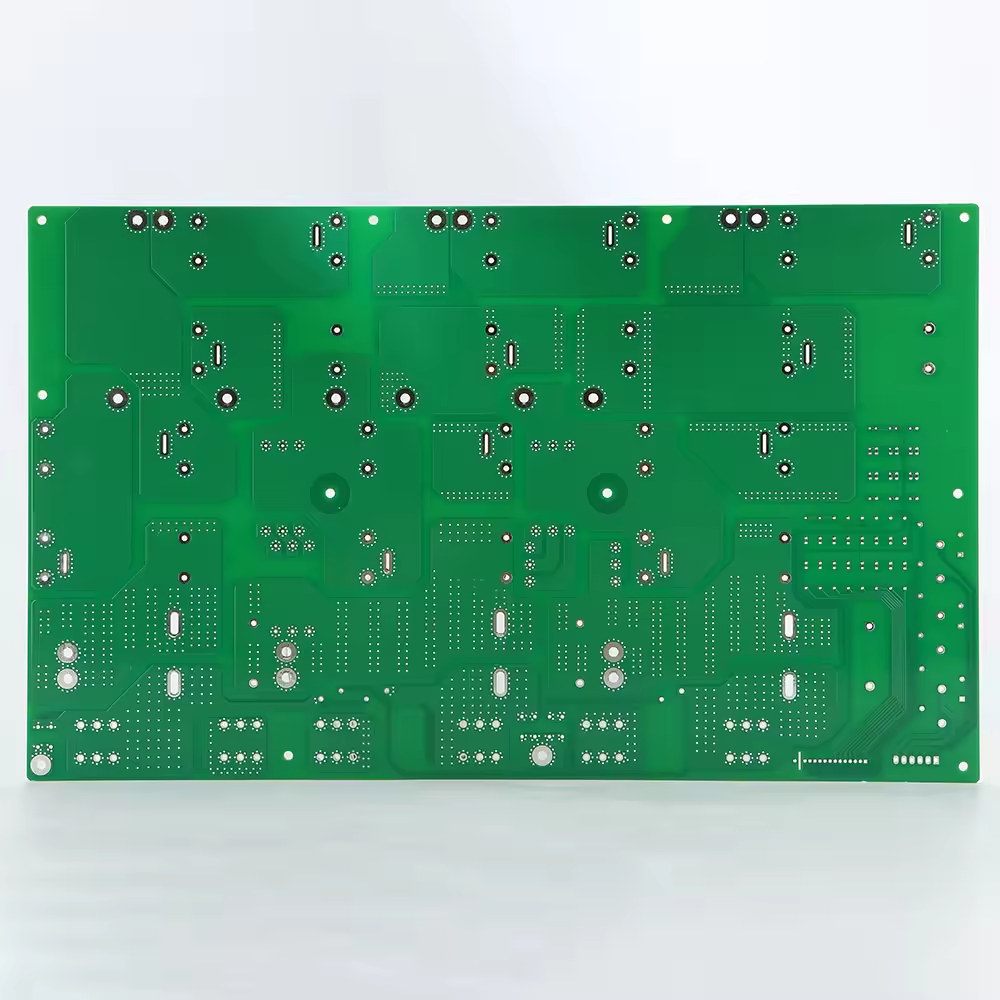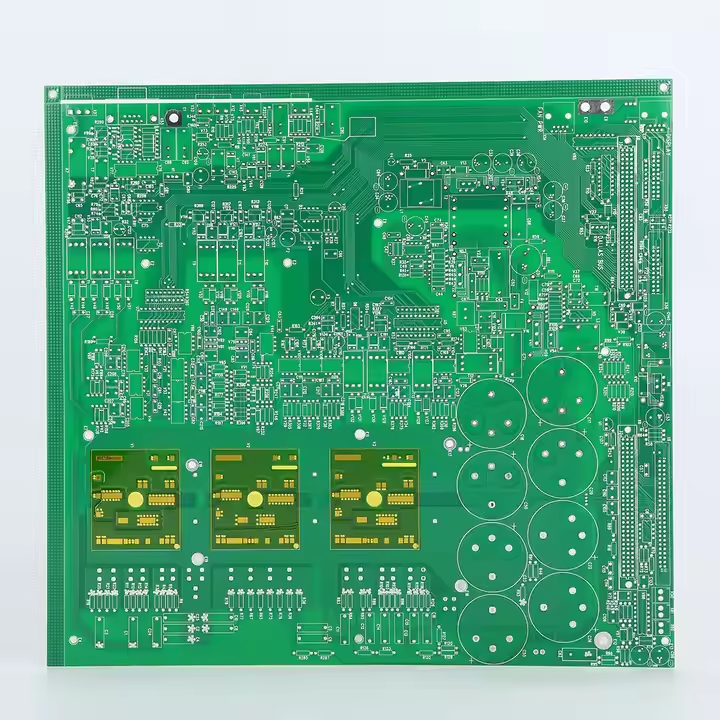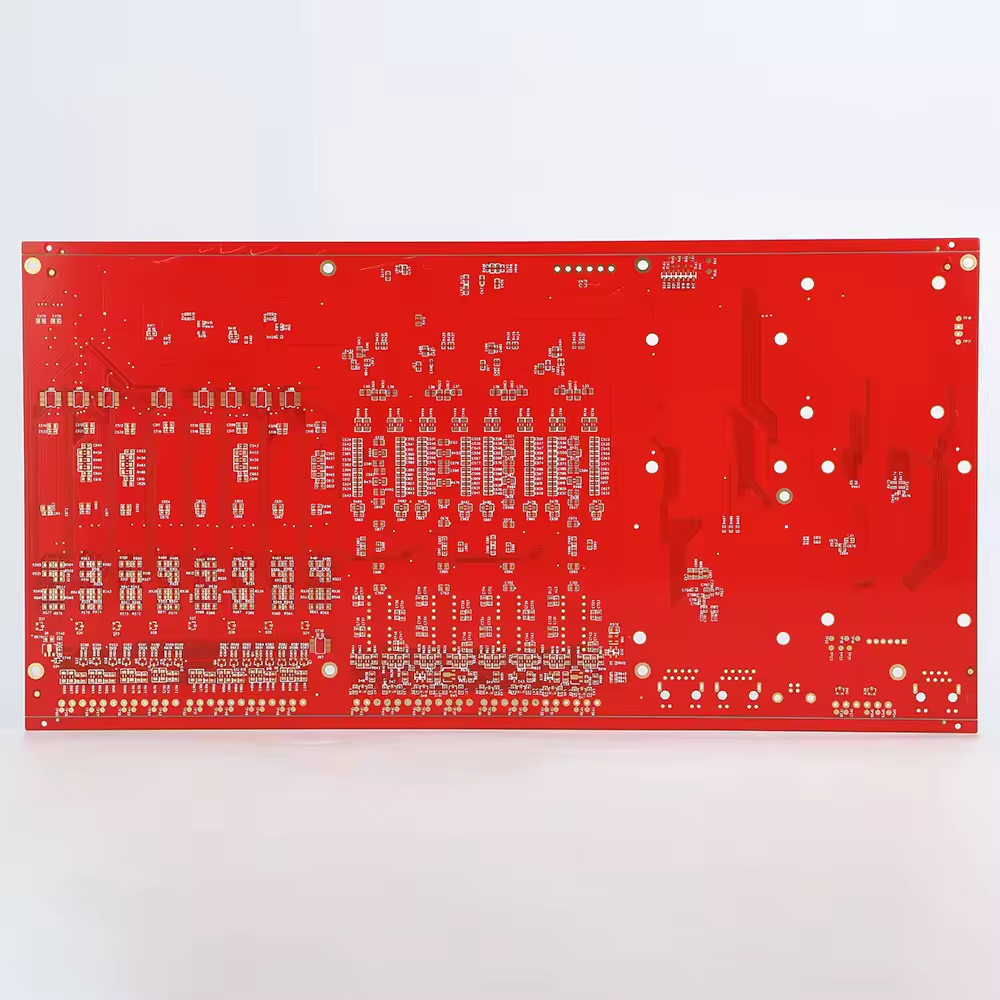One-stop OEM services in electronic manufacturing streamline various aspects of product development, effectively simplifying the supply chain and enhancing product quality. These services integrate multiple stages of production, from printed circuit board design to the assembly of complete electronic devices, thereby minimizing the complexity that manufacturers face when dealing with multiple suppliers. This holistic approach is designed to provide a seamless transition from concept to final product, ensuring that each component of the manufacturing process is aligned with the end goals.
The importance of these services in meeting market demands efficiently cannot be understated. Statistics show that companies using one-stop OEM services experience a time-to-market improvement of up to 30% compared to those using traditional methods. This acceleration is crucial in today's fast-paced market environment, where the ability to launch products swiftly can dictate market success. Such efficiency allows manufacturers to respond promptly to consumer demands and maintain competitive advantage.
Furthermore, one-stop OEM services offer a holistic approach that combines design, manufacturing, and after-sales support, fostering enhanced collaboration among stakeholders. By integrating these processes, companies can ensure that all teams work cohesively, reducing the risk of miscommunication and design errors that could otherwise lead to costly revisions. This approach not only optimizes the manufacturing workflow but also strengthens partnerships across the supply chain, ultimately leading to a higher quality of printed circuit board assembly and a more robust end product.
Printed Circuit Board (PCB) design serves as the foundation of electronic devices, playing a crucial role in their functionality and reliability. The design process involves several key principles, such as component placement, trace routing, and layer stacking, to ensure efficient signal flow and minimize interference. Modern PCB design utilizes advanced software like Altium Designer and Eagle CAD, which offer powerful tools for schematic capture and simulation. Additionally, emerging trends such as the adoption of flexible PCBs and the integration of AI-driven design optimization are revolutionizing the industry, allowing for more compact and efficient circuits.
The importance of PCB Assembly cannot be overstated, as it significantly impacts the reliability and performance of electronic devices. This process involves the precise mounting of components onto the PCB substrate through techniques like Surface Mount Technology (SMT) and Through-Hole Technology (THT). Proper assembly ensures robust connections and supports optimal device functionality. Industry standards, such as IPC-A-610, dictate the quality benchmarks for assembled PCBs, ensuring products meet stringent reliability criteria. According to a study in the Journal of Electronics Manufacturing, a well-executed PCB assembly can reduce device failure rates significantly, enhancing overall product quality.
Industry standards and case studies further substantiate these points, providing a strong foundation for understanding the intricacies of electronics manufacturing. Adhering to established guidelines helps maintain consistency and quality across all manufacturing stages, from initial design to final assembly. A notable example is the success story of a global electronics firm that enhanced its product reliability by strictly implementing IPC standards, leading to a 30% reduction in return rates. This demonstrates the value of industry standards in reinforcing manufacturing processes.
One-stop OEM services offer a range of low-cost PCB manufacturing options by leveraging advanced technologies and efficient production processes. These services often incorporate automated assembly lines, high-speed SMT equipment, and refined PCB design methodologies to reduce costs. By doing so, they manage to minimize material wastage and optimize manufacturing time, leading to affordable PCB solutions for businesses ranging from startups to established enterprises.
Cost efficiency in electronics production offers several advantages, including scalable operations and reduced sourcing and labor costs. With the ability to scale production rapidly, companies can respond to market demand without significant increases in per-unit costs. Additionally, efficient sourcing strategies and reduced labor expenses help maintain competitiveness, particularly in price-sensitive consumer markets. Such efficiencies support industries that heavily rely on printed circuit board assemblies, from telecommunications to medical devices.
To put this into perspective, one-stop OEM services can achieve up to 30% savings in production costs compared to traditional manufacturing methods. These savings stem from integrated supply chain management and state-of-the-art manufacturing technologies that streamline production processes. This shift not only ensures competitive pricing but also reinforces the financial sustainability of companies in the face of global competition and ever-evolving consumer expectations.
Tailored printed circuit board (PCB) manufacturing processes provide significant advantages by catering to specific client requirements, showcasing the adaptability of modern production techniques. These processes highlight a high degree of flexibility and versatility, accommodating various needs and preferences, whether they are complex multilayer boards or simple, single-layer designs. For instance, leveraging diverse PCB assembly techniques enables manufacturers to address specific client mandates, thus promoting client satisfaction and building enduring partnerships.
Design flexibility and innovation are core aspects of today's electronics production, facilitated extensively by one-stop OEM services. These services empower the rapid prototyping required for testing new concepts and designs, ensuring quick turnaround times and efficient resource allocation. The integration of varied methodologies—such as efficient printed circuit board design—into the prototyping phase is a testament to the innovations OEM services bring to the table, enhancing the overall quality and efficiency of the production process.
The need for customization in electronics is underscored by market research, indicating a rising demand for niche products. A study revealed that over 70% of companies are looking for customized solutions to differentiate themselves in a crowded marketplace. This trend underscores the crucial role of customization in meeting market demands. Custom PCB manufacturing and assembly, driven by specific sectoral requirements, support innovation and specialized product delivery, ensuring that manufacturers remain competitive while attending to customer-specific needs.
The New arrival Customized High Quality Multilayer PCB assembly is designed to significantly enhance the performance of electronic devices. This product features an FR4 base material known for its excellent durability and thermal stability, which ensures robust electrical insulation and mechanical support. Its copper thickness, ranging from 0.5 to 9OZ, offers superior conductivity and current carrying capacity, making it ideal for various applications. The precision design includes a minimum hole size of 0.075mm and line width and spacing of 3Mil, ensuring accurate component placement and minimizing electrical interference. Additionally, the surface finishing treatment improves the PCB's resistance to corrosion and wear, extending its lifespan and maintaining optimal performance.

Customized Electronics PCB Provider 1, featuring the SC-003, offers unique solutions that cater to diverse project needs. Utilizing high-grade FR4 base material, this PCB excels in electrical insulation and mechanical strength, and its copper thickness supports efficient heat dissipation. It is tailored for precision, with a minimum hole size of 0.075mm and line spacing of 3Mil, which ensures tight circuit layouts and reduced signal interference. The SC-003 offers a range of surface finishes, including HASL lead-free and ENIG, adapting to specific application requirements, whether it's about environmental compliance or electrical performance. This flexibility ensures the SC-003 is a testament to innovation and quality.

Customized Electronics PCB Provider 2 delivers unparalleled advantages to the electronics manufacturing ecosystem with the SC-003 Multilayer PCB. This high-quality product utilizes FR4 base material to ensure superior electrical insulation and strength, combined with copper thickness that supports excellent conductivity and heat management. Its design precision is highlighted by a minimum hole size of 0.075mm and line spacing of 3Mil, which ensures smooth signal transmission. Available surface finishes like HASL lead-free and ENIG allow customization according to environmental and electrical requirements. The SC-003's robust construction and customizable options make it ideal for both industrial applications and consumer devices.

One-stop OEM services offer a streamlined approach to enhancing production efficiency by integrating various services into a single solution. By consolidating tasks such as design, manufacturing, and logistics, companies can significantly reduce production timelines and minimize bottlenecks. This integrated approach ensures seamless coordination across different phases of production, thereby enhancing communication and reducing errors. For instance, when a company like Jabil leverages its global manufacturing and design services, it can rapidly respond to market demands, making it an exemplar of effective OEM integration.
One of the persistent challenges in electronics manufacturing is dealing with supply chain disruptions. One-stop OEM services address this challenge by providing comprehensive solutions that cover everything from electronic product development to post-production maintenance. By managing the end-to-end process, these services help mitigate uncertainties in the supply chain, ensuring a more predictable flow of goods. For example, VentureOutsource.com highlights how employing Provider Advisors can help companies navigate complex supply chains, thereby enhancing operational resilience and flexibility.
To underscore the effectiveness of integrated OEM services, a case study could involve analyzing the strategies used by leading firms to overcome manufacturing hurdles. Expert opinions suggest that adopting comprehensive, integrated solutions enables manufacturers to tackle common issues more effectively. According to industry insights, integrated services not only improve time-to-market metrics but also ensure quality control and cost efficiency. Such evidence emphasizes the value of one-stop OEM services in refining production processes and achieving superior outcomes in today's competitive landscape.